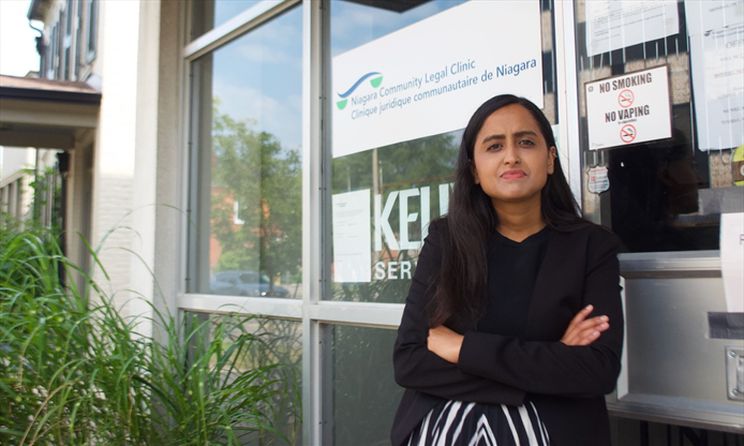
Mandip Grewal has spent the last two years of her life trying to help the people who help put food on our tables every year.
She’s a lawyer with the Niagara Community Legal Clinic, providing legal advice to seasonal workers employed at agricultural farms across the Niagara Region, including Niagara-on-the-Lake.
Some of these workers are at the centre of a dispute with their employers this year after publishing a letter to Jamaica’s Ministry of Labour and Social Security, comparing the program allowing them to work in Canada to “systemic slavery.”
“The bosses are constantly on our back, telling us to move faster,” said one anonymous worker with the Migrant Workers Alliance for Change, or MWAC, in an Oct. 11 video. “The boss uses abusive words that I can’t use on camera.”
For Grewal, the contents of August’s letter were no surprise.
“These are narratives I’ve heard for a really long time,” she said.
Ken Forth is president of the federally incorporated organization Foreign Agricultural Resource Management Services, or FARMS, which processes job requests from seasonal workers.
He said mistreatment allegations are lies created by organizations like MWAC driving personal agendas forward, such as unionizing farms.
“We got good people in this program, who really cherish this program,” Forth said. “These people on the farms are treated as family.”
Since Grewal began this work in early 2020, she said she’s seen a sustained power imbalance between workers and employers when it comes to addressing subpar working conditions or mistreatment.
The anonymous workers said these include poor housing conditions, improper safety training, inadequate pay and intimidation by bosses.
“They do not feel they can speak out against abuse,” she said. “I’ve heard employers say to me, ‘I can do whatever I want.’”
Because of this imbalance, the workers are asking the Canadian government to grant permanent resident status, or PR status, to all migrants, including seasonal farmworkers.
Many foreign farm workers are permitted to work in Canada through the Seasonal Agricultural Worker Program.
Forth says farm workers can spend anywhere from six weeks to eight months working here. Many workers have been applying to work with the program, season after season, for decades.
The call for PR status, advocates say, is about trying to correct the power imbalance, giving workers greater ability to exercise their rights without fear of reprisal.
“Because of their temporary nature in Canada … there will be real consequences,” Grewal said.
Both Grewal and Kit Andres, MWAC’s Niagara-on-the-Lake representative, say workers who attempt to speak out typically aren’t rehired by their employers for the next season.
“The bosses tell workers, ‘If you’re making too much trouble, I can just dip into the pool and hire someone else’ who will do things without question,” Andres said.
“That’s a way for employers to circumvent the laws,” Grewal said.
Grewal said other potential reprisals workers face include: employment termination, “blacklisting” certain farm workers within the SAWP system, preventing them from being hired elsewhere and, in some cases, deportation.
Forth expressed no opposition to farm workers applying for permanent status; however, Antonio Illas, a member of the Migrant Farmworkers Project, said the application process has hurdles that make it extremely difficult to be approved — namely, the education level requirements and fluency in either English or French.
The Toronto Star reported in September that the Canadian government is taking steps to pave a path to permanent residency for undocumented workers. Illas said he hopes to see the same happen for seasonal farm workers in the program.
“If they are good enough to come and work in Canada, and they are considered essential workers, the law should provide a path forward,” he said.
